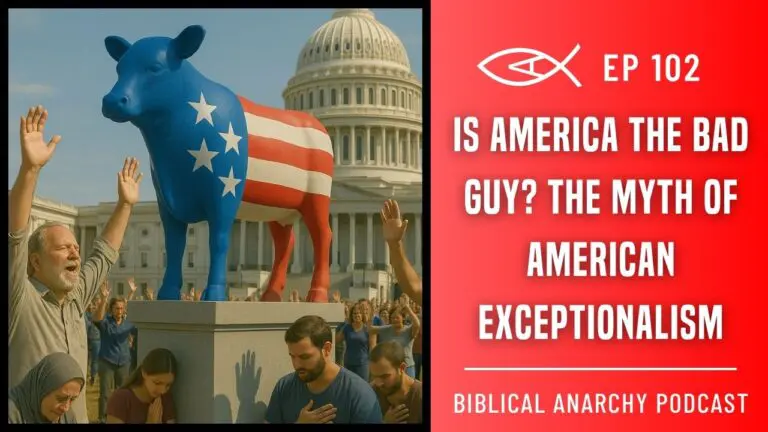

A discussion of “What Is Culture?,” Part 1 of the Reformed Libertarianism Statement. Other episodes are mentioned in which some points from episode 4 are elaborated, and the meaning of subjective sanctification of culture is reiterated. The definition of culture, and why it’s addressed is further explained. The model of reciprocally influencing layers of culture is elaborated, illustrated, and related to the study of historical process. And the promotion of so-called “cultural Christianity” is considered.
| 00:00 | Introduction |
| 00:32 | Episode description |
| 02:02 | Scholasticism and Biblicism vs Neo-Calvinism |
| 03:41 | Subjective sanctification of a Christian’s cultural activity |
| 05:16 | Culture as such, and “cultus” |
| 08:22 | Why we address culture; and the image of God |
| 12:09 | The model of reciprocal layers of culture |
| 18:10 | Illustration of the cell/mobile phone |
| 21:06 | Culture and historical process |
| 23:52 | So-called “cultural Christianity” |
The Christians for Liberty Network is a project of the Libertarian Christian Institute consisting of shows and hosts offering various perspectives on the intersection of Christianity and libertarianism. Views expressed by hosts and guests do not necessarily reflect the view of the organization, its staff, board members, donors, or any other affiliates (including other hosts or guests on the network). Guest appearances or interviews of any incumbents, officials, or candidates for any political, party, or government office should not be construed as endorsements. The Libertarian Christian Institute is a 501(c)(3) non-profit organization and does not endorse any political party or candidate for any political, government, or party office. For information about the Libertarian Christian Institute’s core values, please visit this page.
), //libertarianchristians.com/wp-content/plugins/smartquizbuilder/includes/images/template6-latest.jpeg))

), https://libertarianchristians.com/wp-content/plugins/smartquizbuilder/includes/images/template6-latest.jpeg))








































), https://libertarianchristians.com/wp-content/plugins/smartquizbuilder/includes/images/template6-latest.jpeg))
), https://libertarianchristians.com/wp-content/plugins/smartquizbuilder/includes/images/template6-latest.jpeg))
), https://libertarianchristians.com/wp-content/plugins/smartquizbuilder/includes/images/template6-latest.jpeg))





Sign up and receive updates any day we publish a new article or podcast episode!